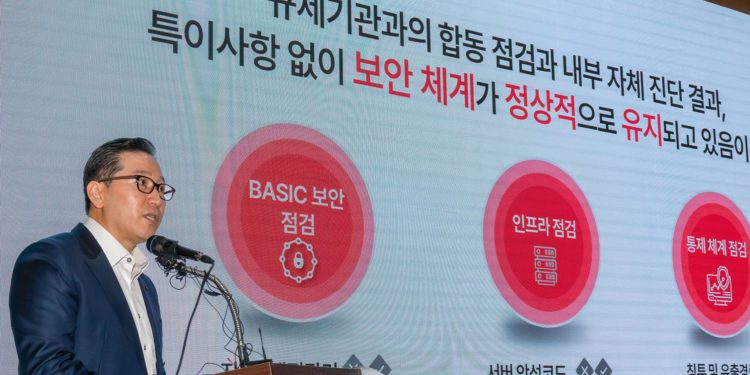KT Corp. announced plans to invest over 1 trillion won (approximately $724 million) in cybersecurity over the next five years. The initiative aims to strengthen its information protection infrastructure and provide safer digital services, particularly in light of growing public concern over data security.
The telecom firm will focus on key areas such as enhancing its AI-powered, zero-trust security monitoring system with a 340 billion won investment, and allocating 20 billion won toward global security partnerships with companies like Microsoft and Google. KT also plans to expand its cybersecurity workforce and boost transparency through improved security disclosures, signaling a comprehensive overhaul of its current security strategy.
KT’s investment comes amid growing public concern over cybersecurity, especially following a recent data breach at rival SK Telecom. SKT, the largest mobile carrier in South Korea, pledged 700 billion won in response to the attack, which exposed customers’ USIM data. KT emphasized that its own investment was already underway before SKT’s incident, with inspiration drawn from a wave of high-profile breaches at major U.S. telecom firms, such as AT&T and T-Mobile.
Breaking down the 1 trillion won initiative, KT will dedicate 340 billion won to advancing its zero-trust security system, which treats all access attempts as untrusted until verified. An additional 20 billion won will be allocated toward forming strategic partnerships with leading global tech companies, including Microsoft, Google, and Palo Alto Networks. These collaborations aim to design future-ready, AI-based security infrastructure.
A significant portion of the budget—660 billion won—will be allocated to enhance existing security protocols, improve transparency, and foster public trust. The company also plans to strengthen its internal capabilities by investing 50 billion won in growing its cybersecurity workforce, increasing the number of specialists from 162 to 300.
KT will operate under its proprietary K-Security Framework, which combines proactive and defensive strategies. The framework includes K-Offense, which conducts simulated cyberattacks to detect vulnerabilities, and K-Defense, an integrated response system with technical and administrative safeguards. The company also plans to launch Korea’s first integrated IT and network cybersecurity center, providing around-the-clock monitoring nationwide.
KT is also enhancing its AI-powered tools to better protect customers from evolving digital threats with the goal of raising detection accuracy to 95 percent.. The company is set to roll out its upgraded Voice Phishing Detection 2.0 service later this year, featuring advanced speaker recognition and the ability to detect deepfake voices. Developed in collaboration with the National Forensic Service, the system utilizes AI trained on over 25,000 real phishing cases to scan live calls for suspicious keywords and alert users in real-time.
To further combat cybercrime, KT is improving its spam filtering system for text messages. The upgraded solution will identify new types of scams, including investment fraud and messages designed to imitate social media chats. On the enterprise side, KT is boosting its defense against distributed denial-of-service (DDoS) attacks by expanding its threat intelligence database and plans to more than double its DDoS mitigation capacity by the end of 2025.
Image credits: KT Corp







